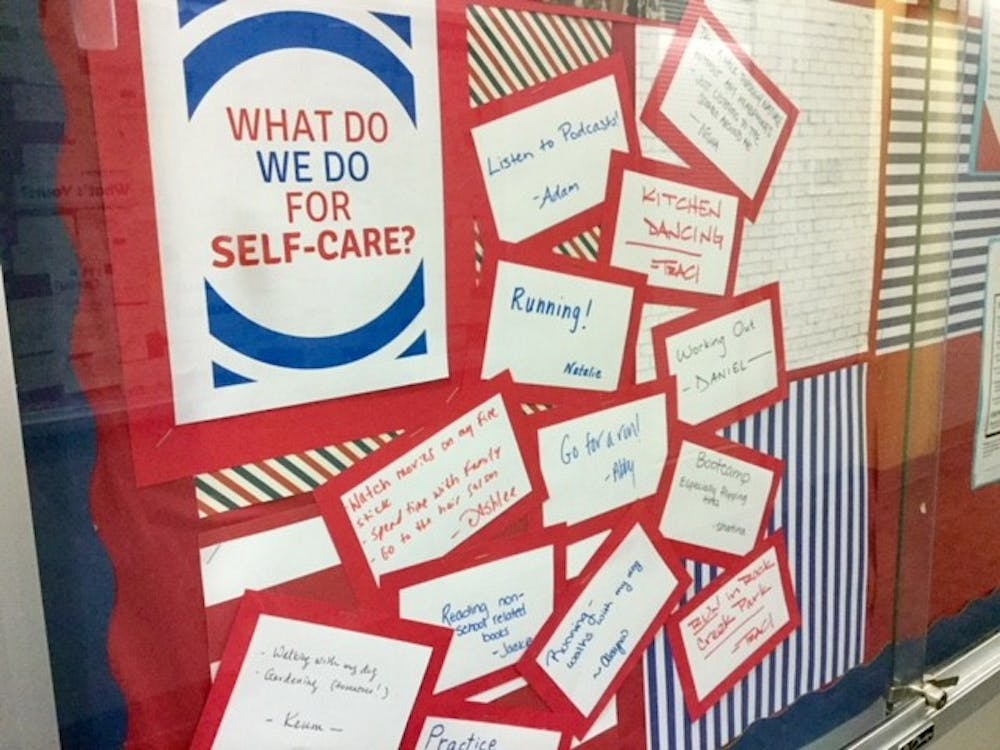It’s midterm season and you know what that means: trading time with your friends for late nights at Club Lib. It’s easy to become overwhelmed by work, even breathing can seem impossible. It is important to make time for self-care, and there are techniques for all kinds of people.
Shatina Williams, licensed psychologist and interim assistant director for outreach and consultation at the Counseling Center, has some suggestions.
“At the heart of it, self care is a practice that is routinely done that helps manage stress and increase positive moods,” Williams said.
How people increase that positivity differs for everyone, though.
“Some students love quiet time walking on a local trail while another would love nothing more than to sit and chat with friends about anything and everything,” Williams said. “The goal is to select activities that you can engage with in an ongoing way.”
According to Williams, the diathesis-stress model in psychology argues that mental health concerns results from physiological vulnerabilities – how easily one is influenced by biological changes – interacting with life stress. Although people are unable to control their physiological vulnerability, Williams said they can take control of their stress by altering or eliminating the stressor, changing the meaning of the stressor or by shifting one’s internal response to the stressor.
Of the options, gaining control of one’s internalized response is the one thing we can control the most. To help manage your internal world, Williams said she suggests finding activities that can either reduce your stress at a reasonable level, or help you feel good. However, which activities work best may vary from time to time.
“You may have a stressful course schedule, and because of that, cardiovascular exercise is needed,” Williams said. “However, you may find yourself in a stressful work situation and because of that, you need an ongoing Friday night movie extravaganza with friends. Whatever it is, the goal is to do it continuously.”
Since the brain has a limited capacity for energy at any given time, it is important for people to take breaks. Many people have difficulties knowing how long these breaks should last.
“The general recommendation is that for every 45 minutes of studying, you should take five to 10 minutes of rest,” Williams said. “Taking a break allows your mind to shift, gain some semblance of energy, and allows you to continue working more efficiently.”
The key to self-care is being able to find a balance in your life. To reach that balance, it’s important to continue your self-care when stressed. For some people, being overwhelmed can make it easier to forget about eating well, exercising and spending time with those that matter to you most. It’s crucial to find ways to make time for the little positive things in order to be your best self.
“It is when we are stressed that we need our self-care even more because we want to create some equilibrium in ourselves,” Williams said. “Self-care helps us counteract the stress.”




